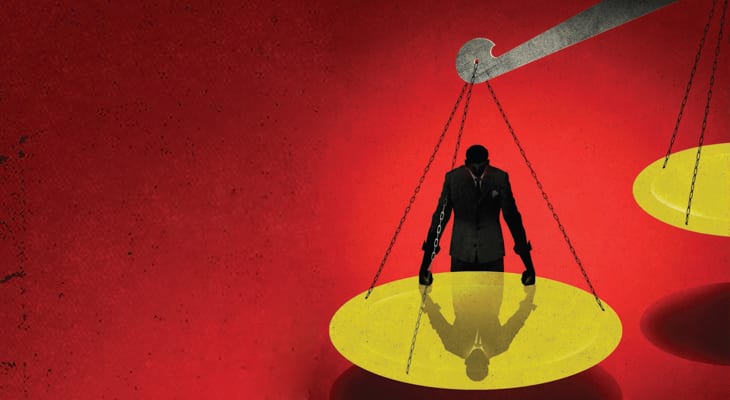Narcissistic CEOs can endanger a firm’s stability and bottom line

Some level of narcissism can aid a CEO’s success. Narcissists can be charming, extroverted leaders who boldly take risks and persist against formidable odds. But, says Prof. Jennifer Chatman, “the downside is they are overconfident and tend to focus on the potential benefits and minimize the costs of risky actions.” Such as plunging into the dangerous waters of litigation.
In research published in The Leadership Quarterly, Chatman and her colleagues found that narcissistic CEOs are significantly more likely to engage their firms in lawsuits and less likely to settle cases. The paper is co-authored by Stanford’s Charles O’Reilly, MBA 71, PhD 75, and UC Berkeley researcher Bernadette Doerr.
To gauge the narcissism of CEOs, Chatman and her colleagues surveyed 250 employees from 32 of the largest publicly traded U.S. hardware and software firms, asking employees to rate the degree to which their bosses were (among other adjectives) “arrogant,” “egotistical,” “temperamental,” and “extroverted.”
The researchers cross-referenced these scores with other measures, such as the number of times CEOs used first-person pronouns in letters and the sizes of their signatures—both associated with narcissism—in order to develop a narcissism score for each executive.
Correlating these scores with the number and length of lawsuits, the researchers discovered that CEOs rated as more highly narcissistic led firms that were more likely to be named as defendants in a lawsuit. Lawsuits involving narcissistic CEOs also lasted longer, implying that those leaders were less willing to settle suits quickly—even though they were no more likely to win them.
Chatman and her colleagues ran other experiments to better understand narcissists’ litigious natures. They used a personality test to gauge participants’ degree of narcissism and then randomly assigned them one of two scenarios: what would they do if they were a CEO launching a new product and the company’s lawyers said there was either a low chance or a high chance they would be sued?
When the chances of being sued were 20 percent, the narcissists and non-narcissists were equally likely to proceed. Yet when told there was an 80 percent chance of being sued, the narcissists were almost three times as likely to go forward with the launch, with about 62 percent saying they’d proceed.
Researchers found a similar pattern in participants’ likelihood of settling a lawsuit. When told the risk of losing was high, 79 percent of non-narcissistic individuals were willing to settle while only 40 percent of the narcissists said they’d settle.
“We already know that most people—and even the boards who hire CEOs—confuse strong leadership attributes and some of the key attributes of narcissists, such as grandiosity and overconfidence,”Chatman says. “It’s important to pay attention to the difference, because narcissists appear to have a significant, and negative, impact on the organizations they lead.”
Chatman recommends that boards look for CEOs with track records of incorporating expert views into their own thinking and those who can develop inspiring and strategically relevant visions that bring others along with them.